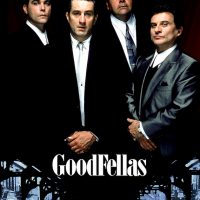In 2003, Newsday called the blockbuster, runaway Broadway hit "Wicked" an "overblown and laboriously ambitious jumble." The article also said none of the songs were memorable. Fans would disagree by belting out "Defying Gravity" while enduring a long commute or just hanging around the house. But even if critics want to argue the point with fans, they can’t disagree with the numbers. Crain's reported that as of 2014, the show's investors saw a return of over 1,000 percent.
How do critics get it so wrong when music, films, plays and books are initially panned only to go on to earn millions of dollars and a legion of fans? The reasons vary but usually boil down to the same thing: critics and fans simply want different things. Critics often devour the content with an eye on story and character development, production value and cultural and societal significance. Meanwhile, fans want something that resonates and entertains. Fortunately, critics don’t have the last word. Here’s a handful of some of the most popular plays, movies, books and music that would have never made it past their opening if the critics had it their way.
Les Miserables
Critics weren’t shy about voicing their intense displeasure over the film adaptation of "Les Miserables," despite loyal fans flocking to the theater. It ultimately took home three Oscars, including Best Supporting Actress for Anne Hathaway. But it turns out critics were also pretty lukewarm when the play first opened in the United Kingdom at the Barbican. Critic Michael Ratcliffe of the Observer called it "witless and synthetic entertainment," despite the play earning scores of adoring fans and an opening on Broadway in 1990.
In 2014, "Les Miserables" returned to the Imperial Theatre on Broadway where it had previously spent 13 years, spanning over 5,000 performances. To date, "Les Miserables" has grossed over $145 million and won over 100 Olivier, Tony and Grammy awards. Tickets to this raved about show are on sale now at Telecharge.
Lord of the Flies
William Golding's "Lord of the Flies" was published in 1954 and sold fewer than 3,000 copies in the United States before going out of print. It was largely panned and dismissed before it gained a cult following and before Time Magazine called it one of the 100 best English-language novels from 1923 to 2005. Despite his early failure as a writer and harsh words from critics, Golding went on to win a Nobel Prize in Literature for his novel "Rites of Passage" and became a knight.
The Beatles
According to Nielsen's 2009 Top Ten Selling Artists list, The Beatles sold over 3 million album units and were only beat by Taylor Swift and Michael Jackson. But when The Beatles first took America by storm in the 1960s, the critics weren’t just underwhelmed, they were offended by their lack of talent. In 1964, the Los Angeles Times said that not even their mothers would claim they sing well. Meanwhile, Newsweek called their lyrics a catastrophe. Luckily for music lovers everywhere, fans proved these critics wrong.
The Wizard of Oz
It’s true most critics found "The Wizard of Oz" to be captivating and charming, but not everyone. The New Republic film critic Otis Ferguson loathed its "freak characters" and seethed it "weighs like a pound of fruitcake soaking wet." Ferguson stuck to his guns about how much he despised the film, despite its growing success and Oscar win for Best Original Score and Best Original Song. Judy Garland also won an Oscar Juvenile Award, which she referred to as the Munchkin Award.
Susan Finch is a freelance writer with a passion for travel and helping small businesses find their online voice through content marketing, blogging and beyond. She is an eclectic writer with more than 10 years of experience contributing to guidebooks, magazines, iPhone apps, online publications and more. Susan can be found at BySusanFinch.com.





















